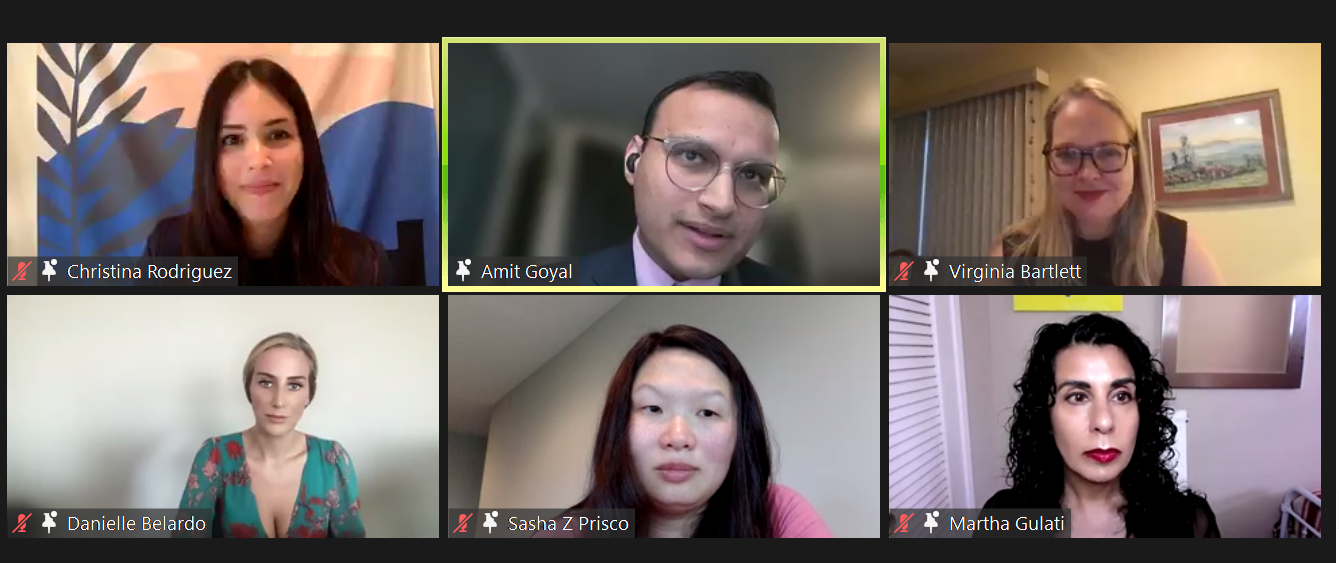
The schedule of events as a first-time attendee to AHA Scientific Sessions can be overwhelming! As an early career blogger, I decided to attend sessions to get advice from professionals on managing social media presence in “Social Media in Cardiology- Managing Misinformation as Fellows in Training”. It was reassuring to take part in a lively discussion with many participants asking questions ranging from, “How do I start developing my social media presence” to “How do I deal with mansplaining?” We were lucky enough to have experienced panelist give their insights.
There are many benefits to taking part in social media as an early career professional. It can be used as a platform to find role models and mentorship or start project and publication collaborations. These connections can be established by simply joining broad dialogues, tagging experts in a conversation, or sending a direct message to interesting people. Establishing a social media persona can also include creating a place to ask questions, sharing expert consensus, and guiding dialogue in a specific discipline. As field experts and early career scientists, we are uniquely positioned to gather cutting edge information and share our knowledge with broader audiences. In order to be successful in these endeavors, choose your social media platform carefully. Understanding the age-group audience predominating that specific platform can inform the type of content you decide to post and will influence how you frame your ideas.
While participating in an environment that is not curated can allow you the freedom of sharing pictures of your dogs along with scientific news, panel experts also reminded us that everything on social media lives forever. The downsides of social media include hostility, mansplaining, and being discredited and turned into a meme. Not everything you post can be edited, and typos can be an annoyance for yourself and others when conversations are picking up speed. However, when your post turns out to be factually wrong or misguided, a public apology might ensue. Being transparent about how you gathered information and why you are sharing it with others can help establish and maintain trust in quickly developing online discussions.
Things can also get tricky when dealing with misinformation or with patients asking for medical advice. Many patients seek to educate themselves by seeking information online, and practitioners have a responsibility to educate and be effective leaders in this online space. In fact, social media training is becoming a desirable and valuable skills set for many early and mid-career professionals. Professionals can use social media to spread scientific evidence for the greater good but will also need to develop an approach for responding to misinformation. When engaging in difficult conversations, be explicit about the limits of what you are offering and avoid driving more traffic to misinformation pages. Be cautious when engaging with misinformation posts; give others the benefit of the doubt but stay concise in your responses and only provide the correct information. If you are unable to engage in a meaningful discourse you can move on, or if you are so inclined you can call out, block, ignore, or mute hostile people. There is a balance between the benefits you gain from social media and the time you spend online. Overall, to make social media a positive part of your career, make sure to set boundaries, build trust, and be accurate about what you post. Social media can be an effective way to build your professional persona, make meaningful connections, and communicate science if you develop the right approach.
This program is part of the FIT Program at #AHA21. The panelists Danielle Belardo MD, Amir Goyal MD MAS, Martha Gulati MD MS FAHA, Virginia Bartlett, and was moderated by Christina Rodrigues Ruiz, MS and Sasha Prisco MD, PhD.
“The views, opinions and positions expressed within this blog are those of the author(s) alone and do not represent those of the American Heart Association. The accuracy, completeness and validity of any statements made within this article are not guaranteed. We accept no liability for any errors, omissions or representations. The copyright of this content belongs to the author and any liability with regards to infringement of intellectual property rights remains with them. The Early Career Voice blog is not intended to provide medical advice or treatment. Only your healthcare provider can provide that. The American Heart Association recommends that you consult your healthcare provider regarding your personal health matters. If you think you are having a heart attack, stroke or another emergency, please call 911 immediately.”